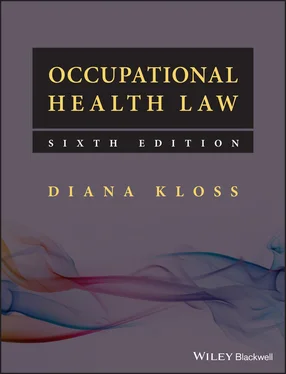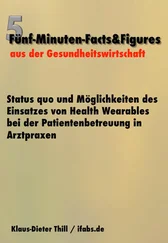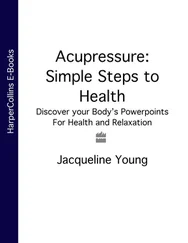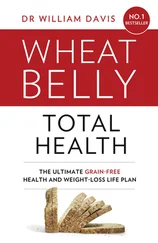2.11 Health care workers with ablood‐borne virus
Ill‐informed fears about the dangers of contracting AIDS from an HIV‐infected health professional, fuelled by worldwide publicity about the Florida dentist who allegedly infected several of his patients, led to the setting‐up by the Department of Health of the Expert Advisory Group on AIDS (EAGA) in 1985 and later the UK Advisory Panel for Healthcare Workers Infected with Blood‐borne Viruses (UKAP). This has a strong occupational health representation. The panel also gives guidance about the management of health care workers (HCWs) who have hepatitis B (HBV) and hepatitis C (HCV). Guidance has now been transferred to Public Health England. Since the last edition of this book there have been important changes in the management of HCWs with blood‐borne viruses (BBVs). Comprehensive new guidance was published in 2017 and updated in 2019: Integrated guidance on health clearance of health care workers and the management of health care workers infected with bloodborne viruses (hepatitis B, hepatitis C and HIV) .
The guidance states that every HCW should scrupulously adopt safe working practices to prevent the transmission of infection with blood‐borne viruses. There are particular problems where HCWs are performing an exposure prone procedure (EPP). These are procedures where there is a risk that injury to the HCW could result in the worker’s blood contaminating the patient’s open tissues (described as ‘bleed‐back’). They include procedures where the worker’s gloved hands may be in contact with sharp instruments, needle tips or sharp tissues (for example spicules of bone or teeth) inside a patient’s open body cavity, wound or confined anatomical space where the hands or fingertips may not be completely visible at all times. Where there is doubt, expert advice should be obtained from a specialist occupational physician who may in turn wish to consult UKAP. The majority of HCWs do not perform EPPs. A risk‐based categorisation of clinical procedures has been developed, including procedures where there is a negligible risk of bleed‐back (non‐EPP) and three categories of EPPs (1–3) with increasing risk of bleed‐back. The guidance also highlights exposure‐prone environments, for example road traffic collisions and industrial accidents, where glass fragments or twisted metal may lead to laceration of the skin of a HCW in the process of attending to or retrieving a wounded casualty. Activities of emergency personnel in such environments are divided into four categories, A to D, according to the likelihood of the occurrence of bleed‐back.
All HCWs, including those who are self‐employed or employed in the independent sector, are under ethical and legal duties to patients. These are reflected in guidance from the regulators, including the GMC, the NMC and the Health and Care Professionals Council. Those who believe that they may have been exposed to infection with a serious communicable disease in their personal life, or in the course of their work, must seek appropriate expert professional advice. Those HCWs who are aware that they are infected with one or a combination of HIV, HBV or HCV must ensure that they are assessed regularly by their treating physician and promptly seek and follow expert OH advice. A failure of a professional who knows or suspects that he is infected with a blood‐borne virus to seek medical advice and act on it is regarded as serious professional misconduct by the medical, nursing and dental professions. The GMC in 1997 removed from the medical register the name of Dr Patrick Ngosa for serious professional misconduct. He was a gynaecologist who feared that he had acquired HIV from a woman with whom he had an affair, but refused to have a test and continued to work for some time until eventually agreeing to a test which proved positive. Dr Gaud, a London surgeon who, realising that he was hepatitis B e‐antigen positive, substituted another person’s blood for his own for the purposes of a blood test. He continued to operate, infecting several patients. He was convicted of a crime, imprisoned and struck off the medical register ( R v . Gaud (1995)).
Employers should promote a climate that encourages confidential disclosure. Those who perform, or who may perform, EPPs must obtain further expert advice about modification or limitation of their working practices to avoid EPPs until they meet the appropriate criteria to recommence EPPs. Procedures which are thought to be exposure prone must not be performed while expert advice is sought.
Blood‐borne virus health clearance
At first there was resistance from the health care professions to the compulsory testing of HCWs performing EPPs. Some surgeons called for the mandatory testing of patients since they considered that they were equally at risk of transmission of a virus from an infected patient. There was, of course, a fear that successful careers would be destroyed since for several years HCWs with BBVs were excluded from performing EPPs. A compromise was to introduce testing only for students and new entrants who would be likely to perform EPPs. A new HCW is defined as an individual who has direct clinical contact with patients in the NHS or independent sector for the first time. Existing HCWs who are moving to a post, or undergoing training that involves EPPs for the first time in their career, are also considered as new. So too are returning HCWs, depending on what activities they have been engaged in while away from the NHS, for example if they have worked abroad or been involved in research which may have exposed them to a blood‐borne virus.
Originally, all students training as doctors had to undertake EPPs at some time in their training but it is now possible to qualify as a doctor without performing EPPs so that BBV testing is not mandatory for medical students. Psychiatrists do not need training in surgery. Additional health clearance is not necessary for nursing students, as performance of EPPs is not a requirement of the curriculum for pre‐registration student nurse training. However, since most of the tasks performed by dentists and some of those performed by midwives are EPP, dental and midwifery students need BBV health clearance from the start of their training.
Hepatitis B presents different problems from HIV. There is a reliable vaccine, and medical treatment results in most cases having a happy outcome, though it is still a serious disease. There is less social stigma attached to hepatitis B infection than to HIV infection. Nevertheless, it is far more likely that hepatitis B will be transmitted in the course of medical, dental or nursing practice because it is ten times more infectious than HIV. Up until 2015 there were nine episodes of documented transmission of HBV from infected surgeons to patients in the UK since 1991. It is recommended that all HCWs, including students, who have direct contact with blood, blood‐stained body fluids or patients’ tissues are offered immunisation against hepatitis B and tests to check their response to immunisation, including investigation of non‐response.
Hepatitis B is a notifiable disease and a prescribed industrial disease under the Industrial Injuries Disablement Benefit Scheme for HCWs.
Hepatitis C is giving rise to increasing cause for concern. There is no preventive vaccine and infection can cause serious liver damage, sometimes many years later. The risk of transmission to the patient from the HCW, especially in the course of major surgery, is far higher than the risk of HIV transmission. There is no post exposure prophylaxis available for hepatitis C. However, treatment is available for hepatitis C infection and those who have responded successfully to treatment with anti‐viral therapy may be allowed to resume EPPs or to start professional training for a career that relies upon the performance of EPPs.
Читать дальше












